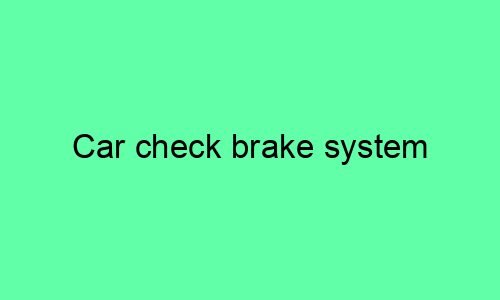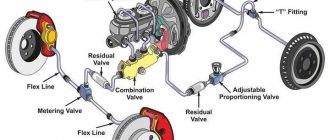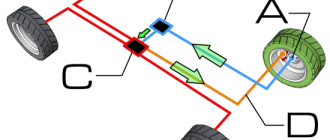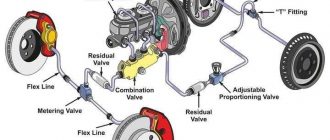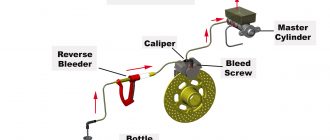Car Check Brake System
Why is it important to check your brake system?
Your brake system is one of the most important safety features on your car. It allows you to slow down and stop your vehicle, and it helps to prevent accidents. That’s why it’s so important to check your brake system regularly and to make sure that it’s in good working order.
How often should you check your brake system?
You should check your brake system at least once a year, or more often if you drive in heavy traffic or in mountainous areas. You should also check your brake system if you notice any of the following signs:
- Your brake pedal feels spongy or soft.
- Your car pulls to one side when you brake.
- You hear a squealing or grinding noise when you brake.
- Your brake pads are worn down.
What should you check when you inspect your brake system?
When you inspect your brake system, you should check the following components:
- Brake pads: The brake pads are the most important part of your brake system. They are responsible for creating friction between the brake rotor and the brake caliper, which slows down your car. Brake pads wear down over time, so it’s important to check them regularly and to replace them when they are worn out.
- Brake rotors: The brake rotors are the discs that the brake pads rub against. They can become warped or damaged over time, which can reduce the effectiveness of your brakes. It’s important to check your brake rotors regularly and to replace them if they are damaged.
- Brake calipers: The brake calipers are the components that hold the brake pads in place. They can become seized or damaged over time, which can reduce the effectiveness of your brakes. It’s important to check your brake calipers regularly and to replace them if they are damaged.
- Brake lines: The brake lines are the tubes that carry brake fluid from the master cylinder to the brake calipers. They can become cracked or damaged over time, which can reduce the effectiveness of your brakes. It’s important to check your brake lines regularly and to replace them if they are damaged.
- Brake fluid: Brake fluid is a hydraulic fluid that is used to transfer pressure from the master cylinder to the brake calipers. It can become contaminated over time, which can reduce the effectiveness of your brakes. It’s important to check your brake fluid regularly and to replace it if it is contaminated.
How to check your brake system
To check your brake system, you will need the following tools:
- A flashlight
- A jack
- A jack stand
- A torque wrench
- A brake cleaner
- A new set of brake pads (if needed)
To check your brake system, follow these steps:
1. Park your car on a level surface and engage the parking brake.
2. Turn off the engine and allow the car to cool down.
3. Jack up the car and place a jack stand under the frame.
4. Remove the wheel from the car.
5. Inspect the brake pads. The brake pads should be at least 1/4 inch thick. If the brake pads are worn down, they need to be replaced.
6. Inspect the brake rotors. The brake rotors should be smooth and free of any cracks or damage. If the brake rotors are damaged, they need to be replaced.
7. Inspect the brake calipers. The brake calipers should be free of any leaks or damage. If the brake calipers are damaged, they need to be replaced.
8. Inspect the brake lines. The brake lines should be free of any cracks or damage. If the brake lines are damaged, they need to be replaced.
9. Inspect the brake fluid. The brake fluid should be clear and free of any bubbles. If the brake fluid is dirty or contaminated, it needs to be replaced.
10. Reassemble the brake system and tighten all of the bolts to the specified torque.
11. Test the brake system by pumping the brake pedal several times. The brake pedal should feel firm and responsive.
Tips for maintaining your brake system
Here are a few tips for maintaining your brake system:
- Check your brake system regularly.
- Replace your brake pads when they are worn down.
- Replace your brake rotors if they are damaged.
- Replace your brake calipers if they are damaged.
- Replace your brake lines if they are damaged.
- Flush your brake fluid every 2 years.
- Have your brake system inspected by a qualified mechanic at least once a year.
By following these tips, you can help to ensure that your brake system is in good working order and that you are driving safely.
